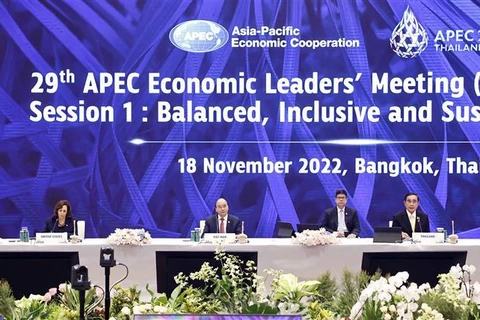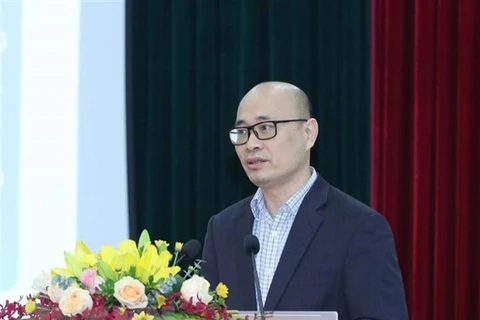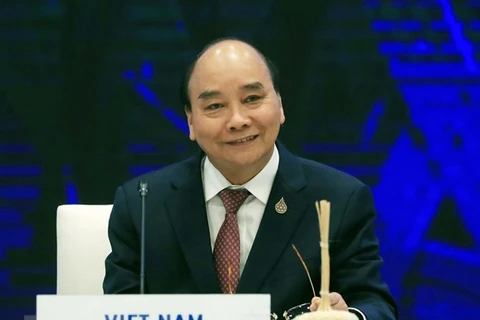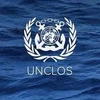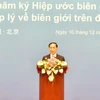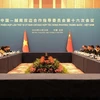Bangkok (VNA) – President Nguyen Xuan Phuc has asked committees and working groups of the Asia-Pacific Economic Cooperation (APEC) forum and APEC Business Advisory Council (ABAC) to enhance dialogues, actively realise the long-term vision for trade and investment in Asia-Pacific, and strengthen multilateral trade system.
Speaking at a dialogue between leaders of APEC economies and members of the ABAC in Bangkok on November 18, President Phuc affirmed that Vietnam supports multilateral trade system based on principles and rules, with the World Trade Organisation (WTO) as the centre.
While a number of new bilateral and regional mechanisms have been set up, the WTO is still considered a “foundational” multilateral cooperation mechanism that helps maintain stability and equality in international trade and economic relations, contributing to the sustainable economic development in the world, he said.
The Vietnamese President called on APEC economies to accelerate important negotiations in the WTO on fisheries subsidies, agriculture and WTO reform.
Vietnam is ready to work closely with APEC members to implement outcomes of the 12th WTO Ministerial Conference and deal with issues that are yet to be agreed in the WTO, he said.
The President told the dialogue that as an open economy, Vietnam has signed and implemented 15 free trade agreements with over 60 partners. It has also been working closely with APEC members to step up regional economic integration in line with 2040 APEC Vision.
Vietnam welcomes and is engaging in a number of multilateral initiatives on micro, small and medium-sized enterprises; trade and economic empowerment for women. It is also studying more about other initiatives, he stated.
He suggested ABAC continue upholding its active role in APEC for an Asia-Pacific region of peace, sustainable development and prosperity for all citizens.
The dialogue between APEC leaders and ABAC is an annual activity within the framework of the APEC Economic Leaders’ Week, enabling leaders to listen to suggestions and opinions from with the regional business community.
In a report submitted to APEC leaders, ABAC proposed APEC take a comprehensive approach to and cooperate in environment and climate change, clean energy transition and digital transformation, regional economic linkage and integration; and assist businesses in adaptation with and recovery from the pandemic.
Leaders vowed to consider the proposals of the business community during the process of building APEC cooperation orientations, as well as in specific policies of each economy in order to bring more practical results to citizens and business community./.
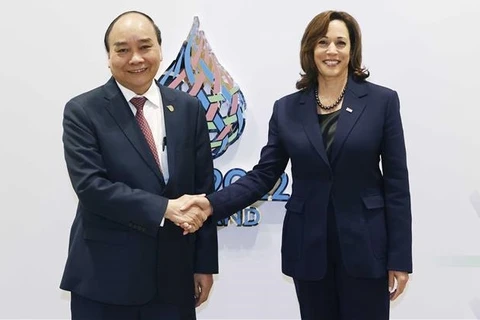
President meets US Vice President on APEC meeting sidelines
President Nguyen Xuan Phuc on November 18 met US Vice President Kamala Harris in Bangkok, as both are in Thailand to attend the 29th APEC Economic Leaders’ Meeting.

